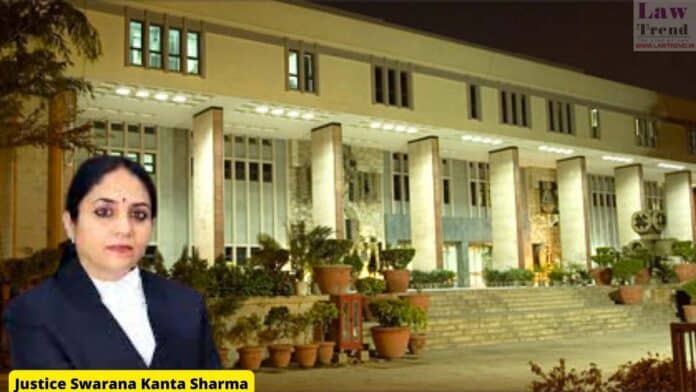The Delhi High Court has ordered framing of rape charges against a man, who allegedly established physical relations with a married woman and promised her and her then husband that he would marry her after their divorce but failed to honour it.
The high court termed it to be a case of “twin promise of marriage”, that is, to the complainant woman as well as her husband and family.
“Had he not promised or represented to her, she would not have entered into physical relations with him. It is to be proved during trial whether it was breach of promise to marry or false promise to marry for the purpose of sexual relationship and a mini trial could not have been conducted to reach this decision at the stage of framing of charge itself,” Justice Swarana Kanta Sharma said.
The high court noted that strangely, the accused man had given a promise of marriage not only to the woman but also to her then legally married husband and her family that after divorce from him, he will not only marry her but also look after the children born to them from their marriage.
“The acts of respondent no. 2 (accused man), thus, prima facie point out at this stage that he had given promise to the petitioner to get married to her and had stayed with her on this promise acting on which she had not only divorced her husband but had also indulged in sexual relationship with him to attract the rigors of Section 376 (punishment for rape) of IPC,” the high court said.
It further said the material on record is strong enough and sufficient to also frame charge against the man for the alleged offence of criminal intimidation as according to the FIR, he had refused to marry the woman and had abused her as well as threatened to kill her and her children.
The high court’s order came while disposing of the woman’s plea challenging a trial court’s order in the case. It set aside the trial court’s discharge order and directed the sessions court to frame charges of offences of rape and criminal intimidation against the man.
The high court noted that a mangalsutra’ was also prepared with the initials of the man’s name and for which he had paid. It said this would also reflect and point out towards his intention and promise to marry the petitioner.
“Needless to say, in India, Mangalsutra for many women is not an ornament but a symbol of love, sacred union and assurance for a lifetime of togetherness with their partner,” it said.
As per the facts of the case, the woman and the man got married to their respective partners in 2011 after their relationship did not culminate into marriage but they both experienced mutual unhappiness in their marriages.
In 2016, the woman and her husband mutually decided to separate from each other and it was at this time that she and the man again came in contact through social media and started talking to each other and resumed their relationship.
Also Read
The woman’s case was that the man assured her of his desire to marry her and gave a commitment. She alleged that they both mutually agreed that following her divorce with her husband, they both will get married and her children will also be taken care of by him.
Justice Sharma noted in the order that it was a peculiar case where the parties had not only represented and assured each other verbally that they will be divorcing their respective partners and will be getting married to each other, but they had also acted upon the promise given to each other to be together in life.
The judge said while the court was not engaging in moral policing and commenting on the conduct of the parties regarding continuing their relationship with each other despite being lawfully married, it cannot ignore that their former partners were also aware about their relationship and their intention to get married to each other once they were divorced from them.




